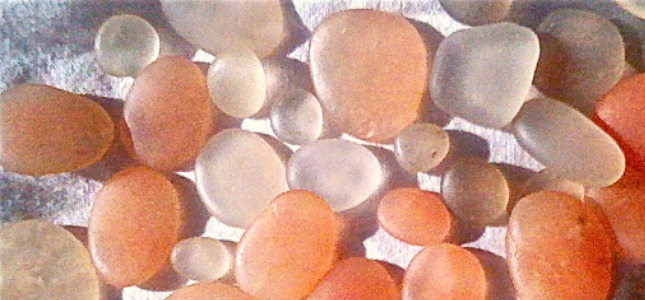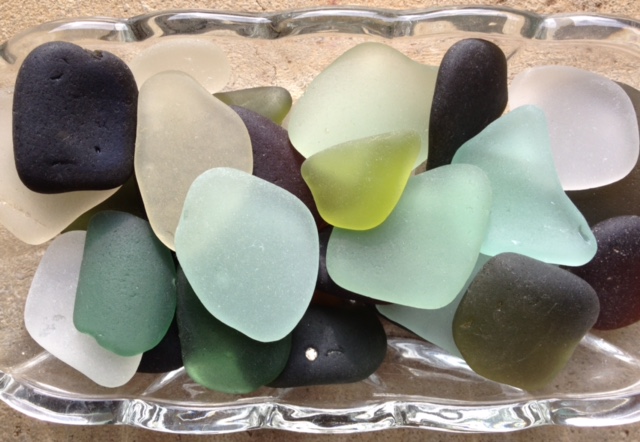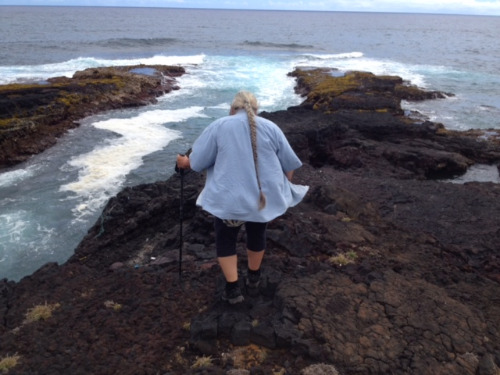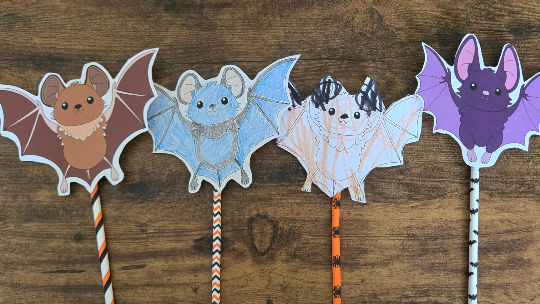Waimea resident Deacon Ritterbush finds peace and comfort in beachcombing to help heal her mind and body.
Beachcombing helped Ritterbush deal with the loss of her mother. She’d walk along Chesapeake Bay where she lived at the time searching for treasures in the sand. It took her mind off her grief. “Nature heals and grounds us,” she said. “You get over grief over time and beachcombing helped me buy time.”
Ritterbush faced another setback two years ago when she was diagnosed with cancer. Although she couldn’t be out in the sun during her six-month chemotherapy treatment, she’d close her eyes to mediate and imagine she was at the beach. Then she’d “table comb” by laying out her beachcombing treasures on a table. She’d receive beachcombing treasures with get well in the mail from people in her worldwide beachcombing network. “It lifted my mood,” she said. “It was very healing for me in my walk through cancer.”
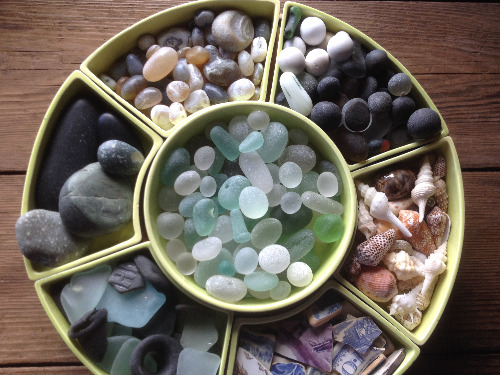
Beachcombing is a hobby that involves searching beaches for shells, sea glass, rocks, and other collectables that wash ashore. It’s like walking on history. On the east coast, she finds Victorian pottery shards from Europe and old sunken merchant ships. In Hawaii, she finds pieces of Asian pottery from the plantation days and sea glass from old sake and nori bottles.
But more important than collecting objects, beachcombing gives Ritterbush a sense of purpose and is good for her overall well-being. “The act of looking for something – that total absorption – gives your brain a rest from grief, anxiety, and stress,” she said. “It takes you away from everything except the present. Looking for beautiful shells or sea glass helps me focus. I get a sense of perspective. I come home more relaxed and happier. It’s a time out from the chaos of life.”
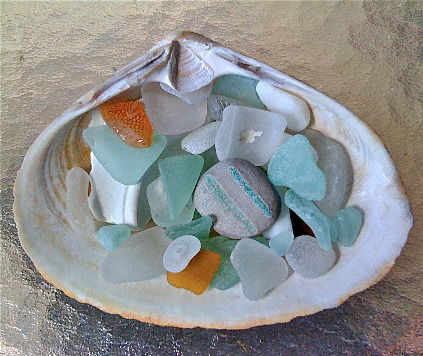
Known as Dr. Beachcomb, Ritterbush has written books about beachcombing. More than 4,000 people worldwide who share the same hobby are connected to her Facebook page. And she’s organized the Seventh Annual International Beachcombing Conference, which starts May 11 in Waimea on Hawaii Island.
“People in cities are removed from our original mother – nature,” she said. “Beachcombing is like a carrot that pulls them outside to be with the ions, wind, and sounds of the waves and birds. It’s soothing and touches the elemental side of us. The beach is where I feel closest to the divine.”
Ritterbush has lived near the ocean most of her life and has been beachcombing for more than 60 years. Her favorite beachcombing beaches in Hawaii are at Honolii Beach Park in Hilo and Sand Island Access Beach Park in Honolulu. “The beach is where I feel most connected to god, divine, energy. For some it’s mountains, the desert, or forest. Just find the place that you feel most connected to the energy in the world.”
Volcano resident Noni Sanford (above) caught the beachcombing bug from her dad in the 1950s. She now takes her grandchildren with her and has introduced beachcombing to war veterans as therapy to deal with post-traumatic stress disorder (PTSD). “It takes a lot of sensory overload off you and replaces it for something more calm and natural,” she said.
Sanford enjoys the physical benefits of beachcombing. “It’s such good exercise. Your feet move on uneven surfaces. It’s good for balance and you can feel the earth around you,” she says.
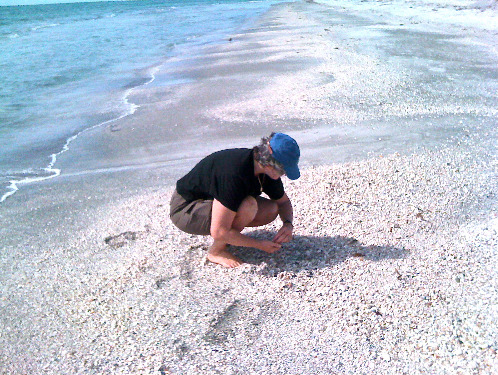
Ritterbush during a beachcombing outing at Long Beach Island, Florida. “Let’s face it, life is hard,” she said. “We get so preoccupied with issues and problems that we take nature’s beauty for granted. And that’s too bad because nature is the great healer.”
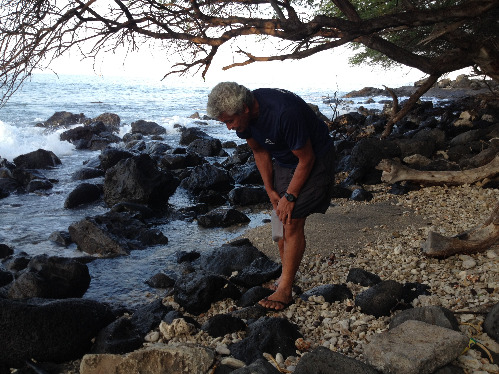
Ritterbush’s husband, Tomasi Patolo, once thought beachcombing was silly but is now hooked.
Photos courtesy Deacon Ritterbush
